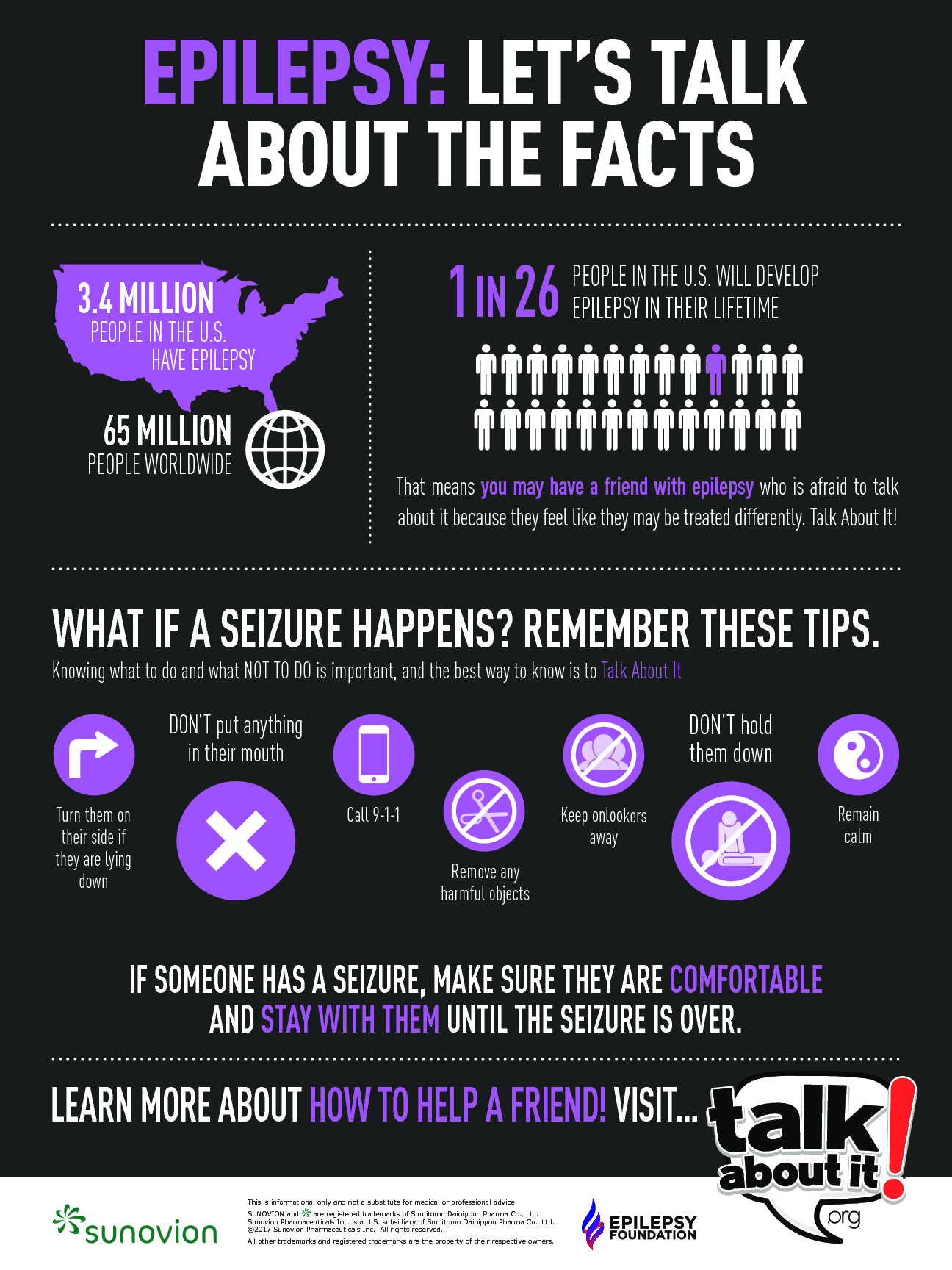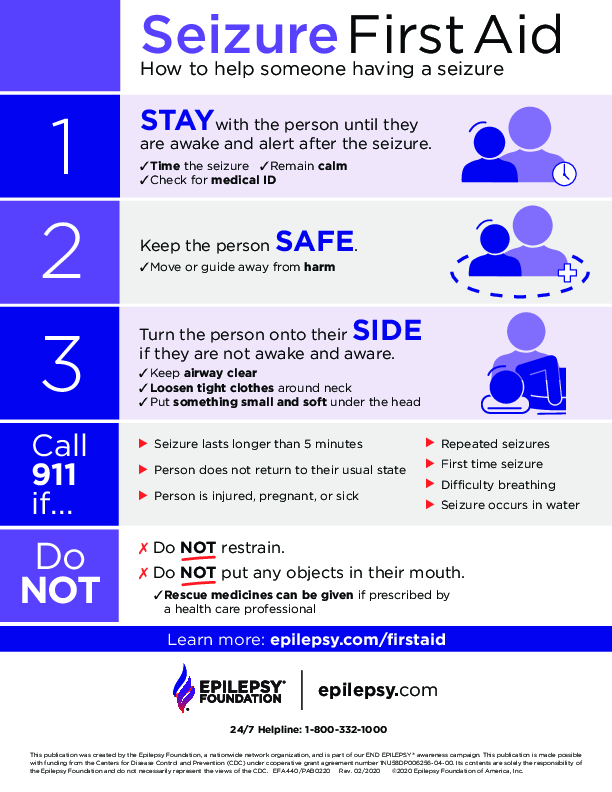Start a Conversation

Why It’s Important To Talk About It!
More than 3.4 million people in the U.S. and 65 million around the world have epilepsy. It is more common that Parkinson’s disease, multiple sclerosis, autism, and cerebral palsy combined!
A third of the people with epilepsy live with uncontrolled seizures because no available treatment works for them. Many more live with serious side effects from their medication as the price of seizure control.
Fear and misunderstanding still surround this chronic neurological condition making many people reluctant to talk about it. That reluctance leads to lives lived in the shadows, discrimination in workplaces and communities, and a lack of funding for new therapies research.
The Epilepsy Foundation wants to help everyone with seizures live to their fullest potential. We want to stop discrimination, find a cure, and bring hope and help to the families affected by epilepsy.
Whether you have epilepsy or know someone who does, you can be part of ending the fear and misunderstanding that surrounds seizures by talking about it.
"Join us and start a conversation about epilepsy and seizures!"
For Safety's Sake
If you have epilepsy, you might want to hide it but that can be dangerous. If you have a seizure, you want the people close to you prepared so they know what to do.
Click image to download
English poster
Epilepsy Conversation Starters
Try to stay very matter-of-fact and positive. Epilepsy is only part of who you are. Seizures are not anything to be ashamed of and if you act like you are not ashamed, people around you will take it in stride too.
Here are some opening lines you might find helpful:
- You know how I'm always wearing this bracelet? It's a medical alert bracelet because I have epilepsy.
- Remember that movie we watched? I have seizures too, but mine are a little different.
- Did I ever tell you why I take medicine every day? I have epilepsy and I take medicine so I don't have seizures.
- Remember yesterday, when I was acting strange? That was actually a seizure.
- You know, sometimes I might act a little weird. I have epilepsy and every once in a while, I have seizures. They can seem scary, but they are over quickly and they're not contagious.
Resources For Answering Questions
When you tell people you have epilepsy, you may face a lot of questions. Depending on culture and age, some people you tell might have very different perceptions about epilepsy. People may want to know if your seizures hurt or what they feel like. They may also worry that epilepsy is contagious so try to reassure them it is not. You may find it helpful to print some information from our website or have some Epilepsy Foundation brochures or handouts to give the person.
It may take people some time to process what you’ve told them. Try to be patient and check back later to see if they have questions. You might be surprised and learn they already know about epilepsy!
Spread Awareness

If you want to spread awareness about epilepsy and seizures, try one of these ideas:
- Start a conversation with one of these opening lines:
- You know why I wear purple? It's the color for epilepsy and I want to spread awareness about this neurological disorder that effects 65 million people around the world.
- Remember that movie we watched? It only showed one kind of seizure. Did you know there are more than 20 types of seizures?
- Many people don’t know the right way to help someone having a seizure and that concerns me. Do you know? Can we talk about it so you’ll be prepared in case someone has one around you?
- The Epilepsy Foundation leads the fight to stop seizures, find cures, and save lives. They bring hope and support to the more than 3.4 million people in the U.S. who have seizures and they need our help. Will you join me at an event to raise awareness or make a donation at epilepsy.com/donate to support the Foundation’s mission?
- Share content from epilepsy.com on your social media accounts.
- Participate in the Walk to End Epilepsy®.
- Participate in National Epilepsy Awareness Month activities each November.
- Find other ways to get involved with the Epilepsy Foundation or with a local Foundation near you.
- Download this poster and share it with your friends:
 TalkAboutIt-Epilepsy-Awareness-Poster-18x24.pdf
TalkAboutIt-Epilepsy-Awareness-Poster-18x24.pdf- Check out the videos at talkaboutit.org with actor Greg Grunbuerg and his celebrity friends, like Kristen Bell, Milo Ventimiglia, Chris Pine, and Zachary Quinto. They are talking about epilepsy, first aid, bullying, and more. Share the videos with your friends to help them understand.
Click image to download
facts poster
Resources
Epilepsy Centers
Epilepsy centers provide you with a team of specialists to help you diagnose your epilepsy and explore treatment options.
Epilepsy Medication
Find in-depth information on anti-seizure medications so you know what to ask your doctor.
Epilepsy and Seizures 24/7 Helpline
Call our Epilepsy and Seizures 24/7 Helpline and talk with an epilepsy information specialist or submit a question online.
Tools & Resources
Get information, tips, and more to help you manage your epilepsy.






